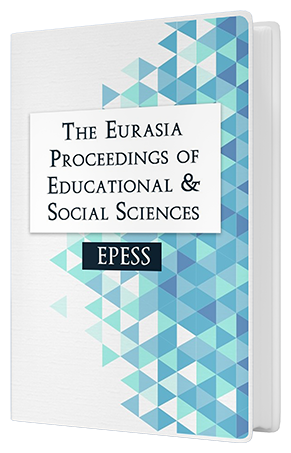Implementation of Higher Order Thinking Skills (HOTs) in Teaching Malay Language Writing Skills among Preschool Teachers
DOI:
https://doi.org/10.55549/epess.1218190Keywords:
Higher order thinking skills, Preschool teachers, Teaching and learning, Writing skills, National preschool standard curriculum.Abstract
In the Malaysian Education Development Plan (PPPM 2013-2025), one of the aspects that is the focus is the implementation of Higher Order Thinking Skills in teaching and learning in schools. In this regard, teachers need to apply HOTs in teaching in order to train and improve students' thinking skills creatively and critically. In addition, in teaching Malay writing skills, teachers need to be more creative in determining HOTs-based teaching methods as writing skills are the most difficult skills to master compared to other skills. Therefore, HOTs are important to be applied in the teaching of writing skills starting from the early stages of education in preschool in order to train preschoolers to think high level and be cultured with HOTs. Hence, preschool teachers need to master the knowledge on the implementation of HOTs so that the teaching process are of excellent quality and can stimulate the thinking of the students to the highest level of HOTs. Thus, this concept paper will discuss the problem of the implementation of HOTs in Malay language writing skills, the importance of teachers applying HOTs in teaching and learning by detailing the planning and implementation of HOTs in pedagogy as well as parsing the teaching and learning strategies of HOTs.Downloads
Published
Issue
Section
License
Copyright (c) 2022 The Eurasia Proceedings of Educational and Social Sciences

This work is licensed under a Creative Commons Attribution-NonCommercial-ShareAlike 4.0 International License.
The articles may be used for research, teaching, and private study purposes. Any substantial or systematic reproduction, redistribution, reselling, loan, sub-licensing, systematic supply, or distribution in any form to anyone is expressly forbidden. Authors alone are responsible for the contents of their articles. The journal owns the copyright of the articles. The publisher shall not be liable for any loss, actions, claims, proceedings, demand, or costs or damages whatsoever or howsoever caused arising directly or indirectly in connection with or arising out of the use of the research material. All authors are requested to disclose any actual or potential conflict of interest including any financial, personal or other relationships with other people or organizations regarding the submitted work.




